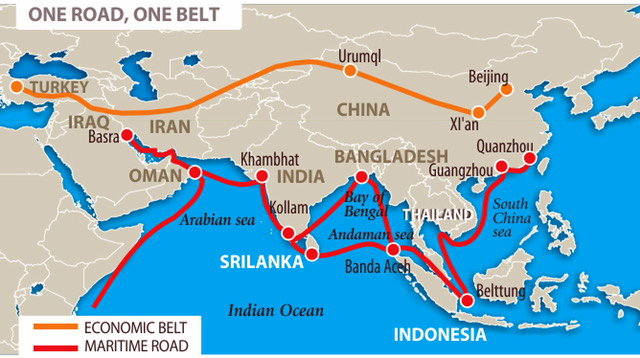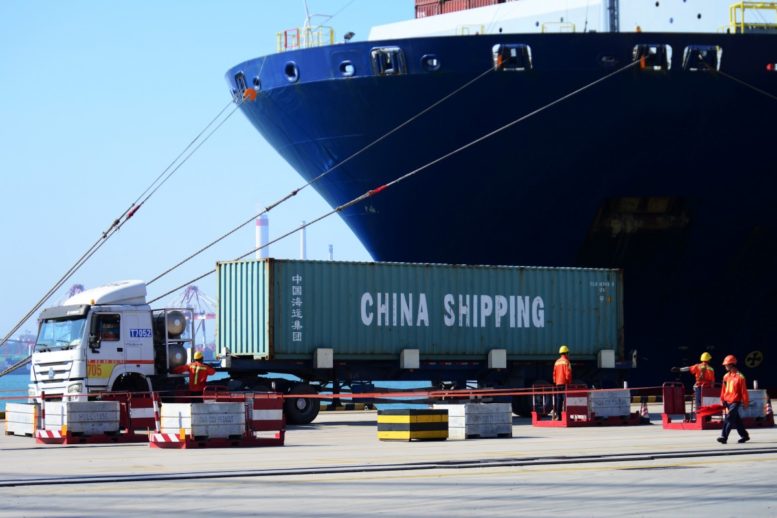The 2018 National Security Strategy of the United States revealed a change in posture, tacitly stated by Christopher Preble in his article “The Benefits of Engaging with China Far Outweigh the Costs and Risks” (30-January-2019) in The National Interest:
The assumption that engagement with rivals and their inclusion in international institutions and global commerce would turn them into benign actors and trustworthy partners … turned out to be false.
In the same article on The National Interest, Preble, citing Tom Wright’s book, “All Measures Short of War,” expressed Wright’s view that,
… globalization was the most powerful idea of the 1990s and 2000s. In those days, foreign policy experts and corporate CEOs believed that “as countries embraced globalization, they would become more ‘responsible’ members of the liberal international order and would, over time, liberalize domestically.
Globalization was accepted wholeheartedly by the Philippines since the Ramos administration, and may I dare say that we were “gung ho” about it, akin to shooting ourselves in the foot.
Prof Kanishka Jayasuriya of Murdoch University, Perth, Australia discusses in his article the termination of this engagement (“The United States is past engaging with China,” East Asia Forum, 30-May-2019). He describes the executive order issued by President Donald Trump as “another blow to China as a potential strategic technology competitor to the United States and follows in the wake of the 25 per cent US tariff on a broad swathe of Chinese goods,” and adds:
This is more than a resetting of the trade relationship between China and the United States. US policymakers have sought to engage and integrate China into the global economy via global trade rules and institutions since the 1980s.
Past US administrations based their China policies on the assumption that China’s economy will move to a more liberal market order via institutional adjustments imposed through global rules. These strategies led to a complex and intertwined relationship between the United States and China. The changes signaled by Trump’s executive order reflect a post-engagement policy supported by the US security community. A significant element of this post-engagement policy is the overt disregard for the WTO rules, which have been a US political project since the Cold War.
A key element of this post-engagement policy is the reconfiguration of security and economics within both trade and strategic policy. The integration of China into the economic order was originally premised on the primacy of a US-based security order in the Asia Pacific. This has been challenged on two fronts. One is the emergence of Chinese political and economic projects such as the Belt and Road Initiative, seen as a challenge to US dominance. The other is the strategic assertiveness of the Chinese military, particularly in the South China Sea.
The complexity of the relationship revolved around perceived conflicting influences introduced by respective goals and strategies involving the US pivot to Asia on the security side and the Trans Pacific Partnership (TPP) on the economic side vis a vis China’s transgressions on the South China Sea and the Belt and Road Initiative (BRI).

As a China watcher since the ‘60s and a CBM player of long standing, I wish all these woes would go away. I remember very clearly the developments coinciding with the fall of Soviet communism and the later collapse of the USSR. I noted in a visit to Russia and the Soviet countries along the Black Sea in 1984, and the kind of development I saw. I thought that once the USSR opened up and became a market economy, it would easily catch up with the West as I wondered in awe about the infrastructure I saw on the Soviet countryside.
But even with the collapse of Communism, we now know it did not happen there. Democracy had introduced something else in Russia – loosening of control by Moscow had enlivened selfish, corrupt interests to gain much headway, thus good governance had to take a secondary position. They did not see the economic advantage that China correctly perceived, and they did not have cheap labor that became a major engine of growth in China.
China’s poverty at that juncture (by the late ‘80s to early ‘90s) enabled it to take advantage of cheap labor, its stability (by not following Soviet style democratization) and the new confidence of the West towards China’s amiable goals. US industry and commercial interests thought that China was now worth investing in, the way it did with Japan, South Korea, Taiwan and the NICs of Southeast Asia in the ‘50s through the ‘70s (I blame US economic managers for not having a strategic plan on this, evidenced by not providing the private sector with some kind of policy). Its rich allies followed suit and China then took a path similar to that of Japan and Germany decades ago – developing via manufacturing of consumer items initially, and exporting them to the United States and other destinations, creating slowly and later accelerating swiftly, a tremendous imbalance in trade.
Could the China engagement policy, viewed within a US-led international market reform agenda that has both economic and security dimensions, be managed under friendly circumstances? I contend that it can be done, had the developments on the West Philippine Sea not taken a turn for the worse. Here, I have officially declared at a Philippine Senate hearing that I considered “premature”, as I believed then, the filing of the arbitral case was a folly of the Aquino administration during its final 2 years, because it created the situation that led China to successfully test US resolve to preserve the status quo on the WPS. China succeeded in finding out that the US resolve was weak, and thus emboldened it to reclaim and militarize several reefs and shoals.
I was convinced that “premature” was correct when during a discussion with some seasoned Filipino old timers in Beijing in 2017, they asked the same thing. I stated, “Well, we (the Philippines) filed the case because China insisted that it had indisputable sovereignty.” The learned response is, “Well, that is what negotiation is all about; you declare your maximum position at the outset and try not to give in.”
Indeed, as I have stated in several fora, the single most important cause of instability in East Asia today has been China’s intransigence with respect to the South China Sea claims. Despite the early gains in CBM that nevertheless just resulted in a stand-off but which could have been peacefully handled with the participation of that ingenious organizational device called the ASEAN Regional Forum, or just the ASEAN plus 3; or merely ASEAN plus one, the Elephant in the Room.
I really have not lost hope on this. The earlier we get the ASEAN countries to agree to discussing this, and, China acceding to come to terms –and not take on its neighbors in seeking revenge for centuries of injustice from Western and Japanese domination– the better it would be for the world.
